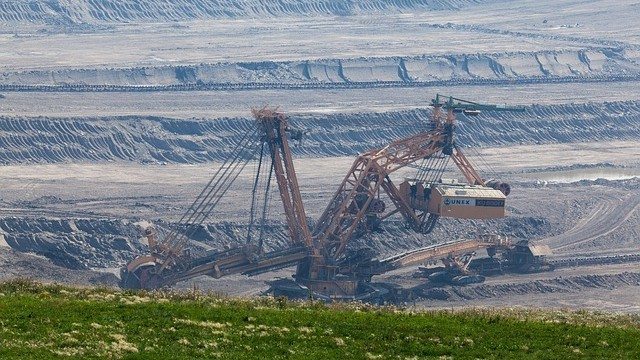 Eric Galatas, WYOMING NEWS SERVICE – Coal companies filing for bankruptcy could put taxpayers on the hook for cleanup costs. According to analysts, state and federal regulators failed to ensure that self-bonded companies had sufficient and enforceable resources for restoration. Fifty U.S. coal companies have filed for bankruptcy since 2012, and after seeing its capitalization fall from $20 billion to just $38 million in five years, Peabody Energy, the world’s largest private producer, followed suit last month.
Eric Galatas, WYOMING NEWS SERVICE – Coal companies filing for bankruptcy could put taxpayers on the hook for cleanup costs. According to analysts, state and federal regulators failed to ensure that self-bonded companies had sufficient and enforceable resources for restoration. Fifty U.S. coal companies have filed for bankruptcy since 2012, and after seeing its capitalization fall from $20 billion to just $38 million in five years, Peabody Energy, the world’s largest private producer, followed suit last month.
Patrick McGinley, a law professor at West Virginia University has wrangled with the coal industry for 40 years as a government enforcement attorney, and has represented coal communities in reclamation cases. He said bad decisions by regulators could allow companies to shift cleanup costs to taxpayers.
“The problem is the way self-bonding was administered, by both federal and state regulatory agencies, assumed that these big coal companies were, like the Wall Street investment banking firms, too big to fail,” he said.
In 1977, Congress passed a law to prevent companies from abandoning coal mine sites. McGinley says the statute forces operators to put aside enough cash so states can fully reclaim mines if the venture goes belly up. He adds the measure does permit self-bonding, where operators essentially give states an “IOU,” but regulators failed to ensure companies had sufficient and enforceable financial guarantees.
In February, state regulators agreed to cut Arch Coal’s almost $500 million reclamation tab to $75 million during bankruptcy proceedings. Wyoming’s deal with Alpha Natural Resources cuts more than $400 million in future cleanup costs to $61 million. McGinley says self-bonding has put officials in a tight spot.
“It’s a real Catch 22,” he added. “Regulators and politicians in coalfield states understand that requiring expensive reclamation bonds would prevent these bankrupt entities from continuing to operate after reorganization.”
According to Reuters, of the roughly $2 billion in cleanup costs facing Peabody Energy, almost 1.5 billion is self-bonded and has no concrete backing.


